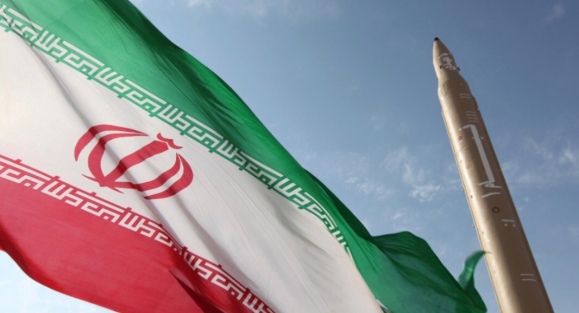
ART HOBSON: Will Iran get the bomb?
President Trump turns lemonade into lemons
The tragic paradox of nuclear weapons is that nations obtain them out of fear of other nations’ nuclear weapons. Ironically, this was even true of the world’s first nuclear power. The U.S. Manhattan Project to build the bomb was driven by our fear of a non-existent Nazi bomb. In fact, the Germans had a World War II nuclear program but they lacked the resources and the broad spectrum of scientific talent needed to get it off the ground.
Following the Hiroshima bombing, the Soviet Union developed their nuclear arsenal because they feared U.S. military (including nuclear) power, and the world was off to the nuclear arms race. The most recent addition to the nuclear club, North Korea, probably built its bombs because of fears of US-engineered regime change of the type launched against Vietnam, Iraq, Syria, Libya and to some extent Afghanistan, where our war against al-Qaeda has degenerated into interference with an internal civil war, much as in Vietnam.
To end this competition, the international Non-Proliferation Treaty was adopted by nearly every nation in the world. Nevertheless, there are today nine nuclear weapons nations, including five (US, Russia, UK, France, China) that had the bomb prior to the Non-Proliferation Treaty’s adoption in 1970, and four nations (Israel, India, Pakistan, North Korea) that got the bomb after 1970 in violation of that treaty. Under the treaty, the non-nuclear nations are expected to abstain from nuclear weapons while the nuclear nations are expected to work toward nuclear disarmament. In all, 184 nations have abided by their non-nuclear pledge, but the five original nuclear nations and the four treaty violators have failed to honor its goal by failing to seriously pursue nuclear disarmament.
With many powerful enemies — chiefly the world’s third-most well-endowed military power Saudi Arabia, nuclear-armed Israel and the USA — Iran has plenty of reasons to desire nuclear weapons. They have probably had a nuclear weapons program in the past: The United Nations charged Iran with being out of compliance with its Non-Proliferation Treaty obligations because of suspected nuclear weapons activities during the early 2000s.
In 2015 Iran, the five permanent UN Security Council members (China, France, Russia, UK, USA) plus Germany and the European Union signed the “Iran nuclear deal.” Iran agreed to eliminate its stockpile of medium-enriched uranium, reduce its stockpile of low-enriched uranium by 98 percent, and reduce by two-thirds the number of its gas centrifuge enrichment devices for 13 years. For the next 15 years, Iran agreed to only enrich uranium up to about 4 percent (usable in reactors but not useful for bombs, which require greater than 80 percent enrichment) and not build any “heavy-water facilities” (useful for producing bomb-grade plutonium). For 10 years, all uranium enrichment is limited to a single facility using older-style centrifuges. In return, the other signatories promise Iran will receive relief from punishing nuclear-related sanctions. In May 2019 the International Atomic Energy Agency certified that Iran had maintained and continued to maintain the main terms of the deal.
The nuclear deal was a real bonus for the planet and had the potential to preclude an Iranian nuclear arsenal. The primary argument against it was its time limitations, but there was every prospect of extending the treaty’s time durations provided Iran was treated with international respect and permitted to develop its economy free of punishing sanctions.
But in May 2018 President Trump turned this sweet lemonade back into lemons. He announced U.S. withdrawal from the Iran nuclear deal, and in November 2018 U.S. sanctions came back into effect in an attempt to force Iran to end its support for militant groups and its development of ballistic missiles. There is little prospect the Iranians will obey either of these U.S. non-nuclear demands, but they might be lured back to negotiations if Trump promises to remove sanctions in return for an extension of the time limitations to, say, 25 years. I have always disagreed with those who are overly concerned about these time limitations, because I think it’s clear that Iran desires nuclear weapons primarily because it fears the USA, Israel and Saudi Arabia, and that a modest amount of good will over time will go far to remove these fears.
Current developments in the Mideast are not encouraging for those who seek a more peaceful world. A war against Iran could quickly turn extremely ugly and even nuclear. It could not be “won” without putting hundreds of thousands of U.S. boots on the ground to defeat this huge, well-armed and largely unified nation.
Commentary on 09/24/2019
No comments:
Post a Comment